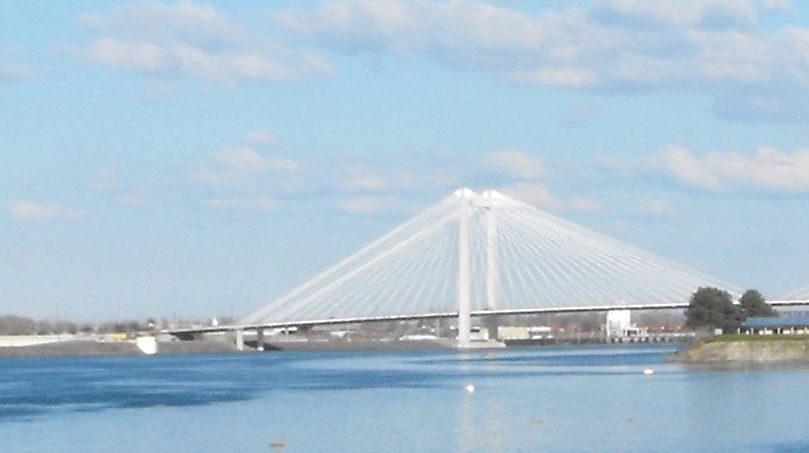Nearly a year after the last public meeting on the topic, Monday’s Pasco council workshop featured an update on the initiative to transfer Columbia River shoreline ownership to local municipalities.
Currently the land is controlled by the Army Corps of Engineers, meaning a change in ownership would require a literal act of Congress.
Such acts have previously been on the table. The effort has a long history.
David Reeploeg, TRIDEC’s VP of Federal Programs, conveyed the current plans and intent of the effort.
“Our goal will be to hopefully include the legislation as an amendment to the fiscal year 2021 National Defense Authorization Act (NDAA), which is one legislative act that Congress passes just about every year,” he said.
Fiscal year bills are passed the calendar year prior, meaning the bill would be in Congress in 2020.
“There is a track record of the shoreline reconveyance already being referenced in the NDAA bill previously, so there is some justification to have it in that moving forward,” Reeploeg said.
Prior to the NDAA bill, Representative Dan Newhouse may first introduce the legislation as a standalone bill, Reeploeg said.
“That would potentially move progress along and have it more well positioned for the NDAA in late winter / early spring because this would allow the Congressional Budget Office to determine any cost or benefit to the Federal government from the transfer, and also it would allow the Army Corps of Engineers to formally weigh in and provide input to the legislation as well.”
Reeploeg said he wasn’t certain that would be the direction things would ultimately take.
Another topic Reeploeg addressed in the update was the initiative’s effort to gain input from regional tribes.
In a 2018 meeting at Richland’s Shilo Inn, a representative of the tribes read a letter voicing concern that local natives had not been included in the reconveyance discussion. Representative Dan Newhouse and TRIDEC officials expressed a desire to include the tribes in the process and they appear to have been working to do that.
Reeploeg said a government-to-government meeting took place between the Confederated Tribes of the Umatilla Indian Reservation and local representatives, including Franklin County Commissioner Brad Peck, Pasco Mayor Matt Watkins, Richland Mayor Bob Thompson, Kennewick Councilman Paul Parish, Port of Pasco Commissioner Jean Ryckman and Executive Director Randy Hayden. Richland and Kennewick City Managers were also present, as well as additional staff, plus Carl Adrian and David Reeploeg from TRIDEC.
“In my recollection, the cities have never formally engaged with the Native American communities and that was an excellent step on face value,” said Mayor Watkins. “The Tribal Board of Trustees Chair called it ‘a historic meeting,’” he said.
Reeploeg said the intent is to make changes to the proposed language based on input received from the Umatilla tribes.
Lummi Nation chair Jay Julius and Yakama Nation chair JoDe Goudy held a press conference on October 14, Indigenous Peoples’ Day, and called for the removal of the three lower Columbia River dams.
“The tribe never consented to the construction of the lower Columbia River dams. On behalf of the Yakama Nation and those things that cannot speak for themselves, I call on the United States to reject the doctrine of Christian discovery and immediately remove the Bonneville Dam, Dalles Dam and John Day Dam,” said Goudy.
In December 2018, the Confederated Umatilla Journal published an interview with Donald Sampson, new Walla Walla Chief Peo Peo Mox Mox:
(Sampson) wants ‘our people’ to return to the Walla Walla tribal homelands along the Columbia River where a controversial ‘reconveyance’ of land has been proposed...
Sampson said the land belongs to the Walla Walla Tribe.
“This is our homeland, our people need to return there to exercise our treaty fishing rights, build a longhouse and gathering area at Columbia Point, protect our cultural sites, and return land to our people,” he said.
Sampson said that in the Treaty of 1855, the first Walla Walla Chief Peo Mox Mox was promised a trading post there, but he was murdered and the U.S. government never kept its promise.
“My father worked for years to honor that promise; now I am handed the torch to carry. Just like the land and longhouse at Wallowa, we want to return to our homeland on the Columbia River,” the new chief said.
While Sampson has served previously as a Chair of the Umatilla Board of Trustees, it isn’t clear whether his expressed concerns are in line with what the group of local representatives may have heard from the current board in their meeting.
At this time, there has not been a direct link expressed publicly between the topic of reconveyance and the new call by the Yakama and Lummi tribes to remove the Columbia dams.
Tumbleweird has reached out to local staff and to the Confederated Tribes for additional information on the meeting and will provide an update if we gain more insight about that meeting.
In addition to the tribes, Reeploeg said he has met with the Audubon Society and the Alliance for Livable and Sustainable Communities in order to understand concerns and work to incorporate them into the process.
However, Reeploeg said, the current draft legislation does not require any environmental studies prior to the transfer taking place, but rather would only require these once there was a plan to do something with the land.
“Doing that would be very expensive and puts the cart before the horse,” he said.
No draft legislation was provided in yesterday’s meeting, but Tumbleweird was able to acquire this copy.
Reeploeg cautioned that this is a draft and work-in-progress that hasn’t been signed off on by Congressman Newhouse’s office, and doesn’t reflect input received since April 22, 2019, including a recent request from Benton County.


